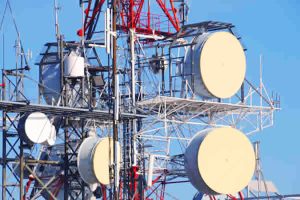By Anthony Emeka Nwosu
When the Nigerian Communications Commission (NCC) announced the upcoming telecom tariff hike, many Nigerians understandably expressed concern. Starting January 2025, call charges will rise from ₦11 to ₦15.40 per minute, SMS from ₦4 to ₦5.60, and a 1GB data bundle will increase from ₦1,000 to at least ₦1,400. Change often comes with resistance, especially when it hits our pockets. But looking closer, this isn’t just about higher prices—it’s about ensuring the survival and growth of an industry that keeps Nigeria connected and moving forward.
For years, telecom operators have been struggling under immense financial pressure. Think about it: MTN Nigeria recorded a jaw-dropping ₦514.9 billion loss in just nine months of 2024. Airtel Africa, another major player, faced $89 million in losses last year. These numbers aren’t just statistics; they tell a story of rising costs, economic turbulence, and an industry stretched thin.
The NCC’s decision to approve this modest tariff increase wasn’t made lightly. It’s a delicate balancing act—ensuring operators can stay afloat while keeping services affordable for everyday Nigerians. For over a decade, telecom companies have lobbied for this adjustment, and finally, the regulator has stepped in to make the tough but necessary call.
I know what some of you are thinking: “Why now, when food prices are through the roof and times are hard?” It’s a valid question. Inflation has hit us all, and the idea of paying more for calls or data feels like yet another burden. But let’s consider the alternative. Without this adjustment, telecom companies could buckle under the weight of their losses, leading to poorer service, slower internet speeds, and fewer network expansions. Imagine not being able to stream your favorite shows or make that crucial business call because the network simply can’t cope.
Minister of Communications, Innovation, and Digital Economy, Dr. Bosun Tijani, summed it up well in a recent interview: this adjustment is necessary to reflect economic realities. It’s not about punishing subscribers; it’s about ensuring the industry remains strong enough to serve us all. And let’s not forget, the NCC has shown it can be tough on operators when it needs to be. Just last year, it rejected a price hike proposed by Starlink, proving it won’t rubber-stamp every request.
What this tariff hike offers is a chance for telecom operators to breathe. With better financial stability, they can invest in improving service quality, upgrading infrastructure, and even exploring innovations that could make our lives easier. For consumers, this means better call connections, faster internet, and wider network coverage—things we all rely on daily.
This isn’t just about the telecom companies or the NCC; it’s about us as Nigerians. The digital world is becoming more critical to our lives—whether it’s running a business, studying online, or keeping in touch with loved ones abroad. A robust telecom sector is essential for all of that, and this hike helps secure its future.
The NCC deserves credit for handling this sensitive issue with care. It engaged with stakeholders, listened to feedback, and chose a path that prioritizes long-term sustainability over short-term gains. That’s not an easy thing to do in today’s climate, but it’s the kind of leadership we need.
So, as we brace for these changes, let’s remember the bigger picture. Yes, paying a bit more for calls and data will pinch, but the alternative—watching our telecom sector crumble—is far worse. This is a necessary step to ensure that Nigeria remains connected, competitive, and ready for the future.
Sometimes, the right decisions are the hard ones. In this case, the NCC has made the right call.




